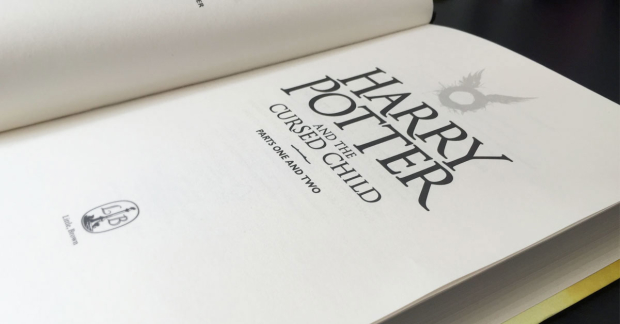An idiot's guide to reading Harry Potter and the Cursed Child
”Harry Potter” fans were surprised by the fact that ”The Cursed Child” was a script. Here Anthony Proctor offers ten tips on how to read the play

Fans of JK Rowling's boy wizard series were this week delighted to be faced with the publication of the eighth story. But many reviews of the book showed that they struggled with the fact that Harry Potter and the Cursed Child wasn't published as a novel, but actually as a play script. Anthony Proctor offers some tips to people who aren't used to reading plays.
1. Read It Aloud
As children we learn to speak English through hearing our parents speak and by reading aloud. Plays are written to be spoken. Why not get some friends around, chose a character (or characters) and read aloud? Be bold and clear – it’s really fun!
2. Embrace The Structure
The way that a play is laid out on a page is very different than how it looks in a novel. In a play, a story is often told through dialogue, with context being added by little paragraphs called stage directions (usually about five lines long, written in italics).
3. Enjoy The Dialogue
We communicate through written speech all the time. Group chats on WhatsApp, text and Snapchat give us endless entertainment. This is very similar to how dialogue is written in a play.
4. Acts And Scenes
Think of scenes as chapters and acts as a group of chapters on a similar theme or plot line.
5. Keep Reading
The further you get the easier it becomes to follow.
6. Who Is Talking
Having to constantly check who’s talking, or getting mixed up with who said what can be very annoying when reading a play but in a great play, you should be able to tell who’s talking without reading the name before the line. After you’ve read ten or so pages, try it. Cover up the margin. Harry Potter and the Cursed Child is a great play and Jack Thorne‘s writing of the characters is brilliant. You are able to follow who’s speaking without having to read the name, (although this might take a little bit of practise), Hermione has a very different tone to Ron, for example.
7. Stage Directions Add Context
Feel like you’re getting a bit lost – don’t skip the stage directions. In this play they’re even more descriptive and helpful than most!
8. Unlock Your Imagination
Novels transport us to magical worlds and invite us to see things in our mind using beautiful descriptive language. Plays leave you the key to these worlds and invite you to explore. For example the play mentions the Hogwart’s express but doesn’t describe it. (We all know what the films think this wonderful train looks like) the play gives you the chance to re-invent it and many other things about the story, in your mind. Don’t stop at objects, visualise characters and places too.
9. Hear The Tone of Voice
In a film, we hear the tone of voice of the character, in a novel we’re told how they speak (Hermione said, slyly). In a play it’s what a character says which gives a clue to the tone – which means the reader has more control of the context of a conversation.
10. Hold On To The Story
Listening to two ladies talking on a bus is sometimes entertaining because of the story that they are telling each other. A play is still a story. Find it and keep hold of it during your reading.
Anthony Proctor is an actor, director and playwright from Liverpool. Currently studying Theatre Studies BA(Hons) at Rose Bruford College. @AntProctor www.anthonyproctor.co.uk












